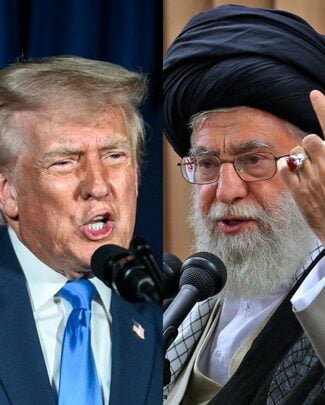Reality is redacted in archived footage on White House /Iran deal
Reality is redacted in archived footage on White House /Iran deal
A critical missing question and answer segment from State Department archived footage of press briefing on Iran deal is suspicious. Fox News White House Reporter James Rosen posed a question to State Department then-spokesperson Jen Psaki about purposely misleading the press for the sake of closing a deal

with Iran. This exchange was wiped from both the State Department and White House archived video files. The missing footage indicates that the White House’s State Department felt it was perfectly within its power and necessary to “lie” to the press in order to continue diplomatic negotiations with Iran.
From Fox News:
Deputy national security adviser Ben Rhodes’ comments to The New York Times Magazine have sparked outrage in Washington’s political and policy circles, especially re-igniting the debate over whether the White House oversold the deal to curb Iran’s nuclear program.
Sen. John McCain, R-Ariz., issued a scathing statement Monday saying the article “exposed how the White House manipulated and, in some cases, manufactured facts to sell the reckless Iran nuclear deal to the American people as a prelude to large-scale disengagement from the Middle East.”
Nebraska Sen. Ben Sasse took to the Senate floor Monday to lambaste the “spin.”
Now, the administration is facing further questions over a block of missing tape from a 2013 State Department briefing where top spokeswoman Jen Psaki was asked by Fox News about an earlier claim that no direct, secret talks were underway between the U.S. and Iran – when, in fact, they were.
In that exchange, Psaki seemed to acknowledge misleading the press, saying: “There are times where diplomacy needs privacy in order to progress. This is a good example of that.”
The Psaki comments, and prior department remarks, would appear to conflict with a fresh claim by Rhodes that they “confirmed publicly” there were “discreet channels of communication established with Iran in 2012.”
That Psaki exchange, however, was missing from the department’s official website and its YouTube channel. The department now says it cannot explain the deletion and is working to restore the material.
Rhodes, though, maintains they did not mislead the public over the Iran deal.
In the magazine profile, published last Sunday, Rhodes and his aides are quoted describing how they disseminated White House-generated talking points about the Iran deal to generate and manipulate the public dialogue.
“We created an echo chamber,” Rhodes said. “They were saying things that validated what we had given them to say.”
Rhodes sought to soften the remarks on the website Medium. In a post late Sunday, he wrote that he didn’t try to dupe the press or spin Washington.
“It wasn’t ‘spin,’ It’s what we believed and continue to believe, and the hallmark of the entire campaign was to push out facts,” Rhodes wrote. “These were complicated issues.”
The Times piece, however, quotes Rhodes lamenting the ignorance of Washington reporters. (“They literally know nothing”), and describes Rhodes — a former aspiring novelist — as focused on crafting a storyline and dismissing facts that don’t fit.
Rhodes also appears to try to keep secret news that Iran had seized 10 U.S. Navy sailors until after the president’s State of the Union speech.
Commentary by James Phillips from The Heritage Foundation:
Now that the Obama administration is spiraling down to a sputtering end, the misguided architects of its disastrous Middle East policies are clamoring to defend what they see as Obama’s positive legacy in the Iran nuclear deal.
The latest case in point is the disturbing article published last week in The New York Times Magazine about President Barack Obama’s deputy national security adviser, Ben Rhodes, the callow “aspiring novelist” who hooked up with Obama’s presidential campaign as a speechwriter, and now has risen to become “the single most influential voice shaping American foreign policy aside from POTUS himself.”

Rhodes, the “Boy Wonder of the Obama White House,” was a graduate student pursuing a degree in creative writing before coming to Washington. David Samuels, who interviewed Rhodes for the article, noted: “His lack of conventional real-world experience of the kind that normally precedes responsibility for the fate of nations—like military or diplomatic service, or even a master’s degree in international relations, rather than creative writing—is still startling.”
It may be startling, but Rhodes’ weak foreign policy background and surprising influence over a president with whom he reportedly performed a “mind meld,” explains a lot about the Obama administration’s incoherent and ineffectual policies in the Middle East, where the White House has botched the struggle against Islamist terrorism.
Rhodes has been a key player in shaping the administration’s false narratives about al-Qaeda being on the run, close to strategic defeat; minimizing the security risks of the total U.S. pullout from Iraq; and downplaying the threat posed by the Islamic State, which Obama famously dismissed as a “JV team.”
Ambassador Robert Ford, the State Department’s point man on Syria policy from 2011-14, criticized the administration’s feckless Syria policy because it did not back up its words with action, which he charged was part of a broader pattern in the administration’s foreign policy of issuing public statements without developing a clear policy.
Rhodes also has played a leading role in selling the Iran nuclear deal by arguing that the deal strengthens “moderates” in Tehran.
Samuels outlined how Rhodes helped to concoct the narrative that the administration began its negotiations in 2013 to take advantage of a more “moderate” Iranian leader, Hassan Rouhani, who was elected president that year. But Samuels noted that the negotiations actually had begun many months before Rouhani’s election and that the narrative “was largely manufactured for the purpose of selling the deal.”
He also could have added that Iran actually had started negotiating with the International Atomic Energy Agency on resolving the nuclear issue back in 2003 and later negotiated with the European Union, but walked away from several tentative agreements.
Even more misleading is the administration’s argument that the agreement can bolster Iranian “moderates” in a power struggle with hardliners. The real struggle in Tehran is between hardliners and ultra-hardliners.
Rouhani’s faction is more pragmatic than the ultra-hardliners, but it is by no means “moderate.” Rouhani is the tactful leader of the Iranian state, but Ayatollah Ali Khamenei, Iran’s supreme leader, remains the implacable spearhead of Iran’s Islamist revolution. The two have worked closely for years and continue to collaborate as a “good cop/bad cop” tag team.
The real moderates were purged in 2009 after they sided with millions of Iranians protesting the rigged elections that handed President Mahmoud Ahmadinejad a second term.
The search for Iranian moderates to deal with has been the “Holy Grail” for American presidents. The Carter and Reagan administrations also thought they had deals with one faction, only to see the deals sabotaged by a rival faction.
The Obama administration’s deal with Iran is unlikely to last much longer than those failed diplomatic engagements or the nuclear deal that the Clinton administration negotiated with North Korea.
Once that becomes clear, the smug and cynical efforts to sell the flawed nuclear deal will fail to secure a positive legacy for Rhodes, let alone Obama.
Partner with Us
Intercessors for America is the trusted resource for millions of people across the United States committed to praying for our nation. If you have benefited from IFA's resources and community, please consider joining us as a monthly support partner. As a 501(c)3 organization, it's through your support that all this possible.


We use cookies to ensure that we give you the best experience on our website. If you continue to use this site we will assume that you are happy with it. Privacy Policy




Comments
No comments have been posted yet; you can be the first!